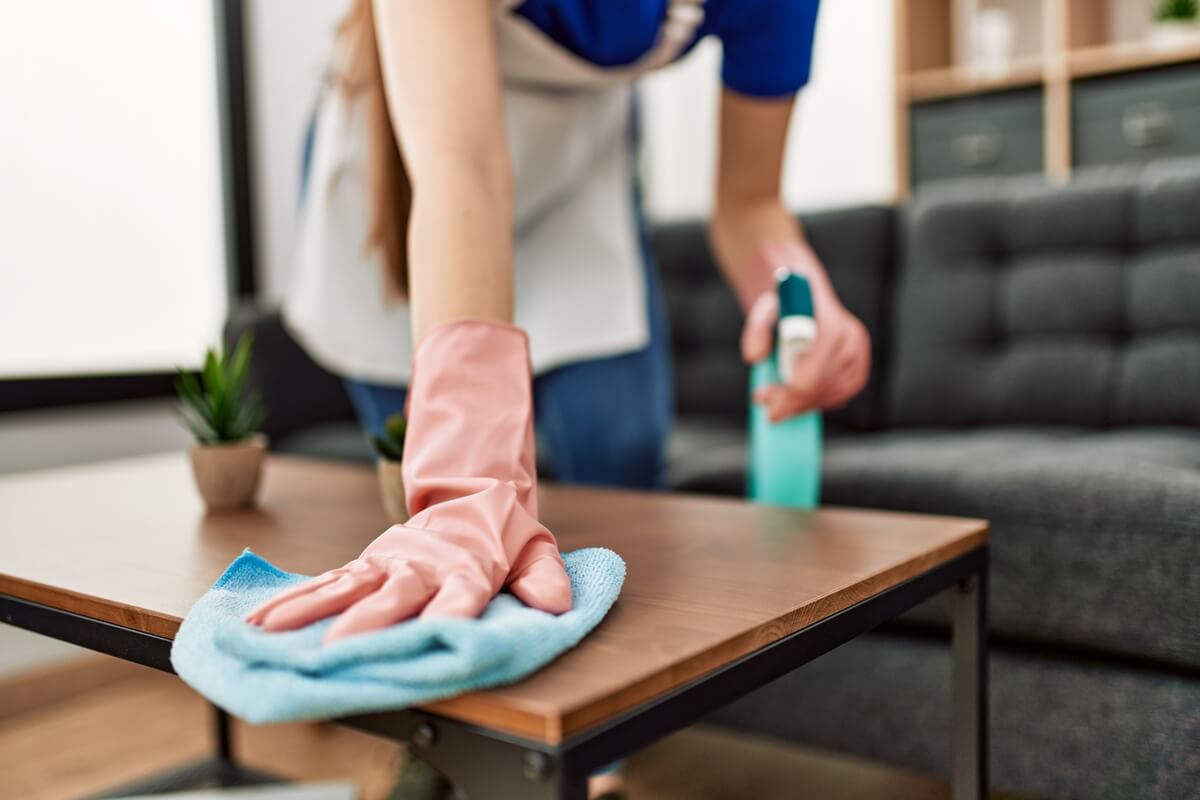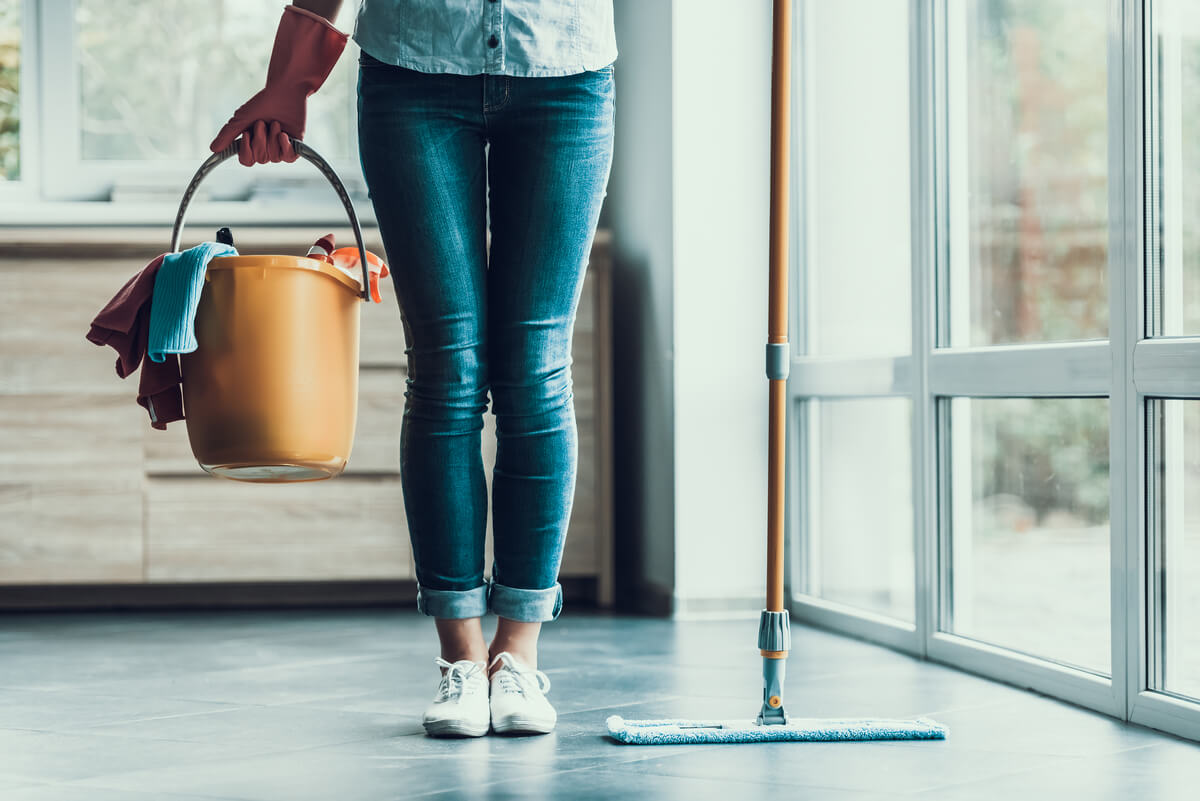The value of your Wilmington home is one of the most important factors when selling the property. Your prospective buyers may propose a sale amount, but you’ll need to undergo an appraisal to confirm that the home is really worth that much. Homeowners often wonder whether they can control the appraised value of their home by deep cleaning or making other cosmetic upgrades to the property.
The answer to whether or not a sparkling clean home fetches more money is unclear. Appraisers are not supposed to take cleanliness into consideration, but some homeowners and real estate agents swear that deep cleaning before the appraisal worked in their favor.

Appealing to Buyers With a Clean Home
Regardless of the appraised value of your home, a clean and staged house may get you more offers from prospective buyers. First impressions are critical when showing your home, and buyers will be immediately attracted to the property when it looks like it’s in great condition. A clean house can look larger, newer, and more cared for than a cluttered or dirty home. The property will be much more competitive if you do a deep cleaning before listing it.
Depending on the current state of the Wilmington real estate market, you might see a considerable difference in offers when you show a perfectly clean home compared to a cluttered home. Most homeowners find that the amount of time or money they put into deep cleaning the house is worth it when they receive higher offers in a shorter time frame.

Do First Impressions Matter to Appraisers?
Appraisers may not be as easy to win over with a clean house as prospective buyers. Your home’s appraiser is trained to view the structure and quality of the house and to overlook the cleanliness or lack of cleanliness. They’ll focus their attention on components like the square footage, number of bedrooms, foundation, and roof. Clutter does not actually impact the size, layout, or amenities of your home, so appraisers say that cleanliness does not play a role in their final evaluation.
However, some homeowners believe that showing off a clean house to the appraiser does make a difference. You might hear a friend or family member report that they deep-cleaned their home before the appraisal and received a much higher value than they were expecting. Although these reports are only anecdotal and don’t prove that a clean house helps with your appraisal, you might decide that it’s worth a try.
Appraisers are trained professionals, but they’re also human. It’s possible that the appraiser could subconsciously view your house more favorably if it’s spotlessly clean. Most people find that a clean house feels more comfortable and more inviting, and those feelings could influence the appraiser’s judgment.

What Messes Can Impact Appraisal?
While a perfectly clean house may or may not earn you a higher appraisal, there are some specific types of messes that can definitely hurt your home’s value. Appraisers look for issues that affect the structure or function of the house, so if the home is in a state of disrepair, the value may suffer.
One of the most common cleanliness-related issues that appraisers notice is mold. Kitchens, bathrooms, and other high-moisture areas can be a breeding ground for mold, and the substance can eat away at walls and cause serious structural damage if it spreads. The best way to avoid this problem is to prevent mold from growing in the first place by taking extreme care with moisture in the house. If you currently have a mold problem, removing the mold before your home’s appraisal is essential. You might be able to clean up a small amount of mold by yourself with bleach or other cleaning agents, but you may need to hire a mold removal expert if the substance is widespread throughout your home.
Similarly, peeling paint can affect your appraisal value. In older homes (those primarily built in 1978 and earlier), peeling paint can be considered a health hazard due to the possibility of lead contamination. If the peeling paint is only a cosmetic issue, it shouldn’t impact your appraisal. However, sprucing up the interior paint is always a good way to get your home ready to sell.
Clutter might also interfere with your appraisal if the appraiser can’t get a clear look at all areas of the home. For example, an attic packed with items will be difficult for an appraiser to evaluate. Clutter piling up in the corners or items blocking key features of the home may create problems, too. Although the appraiser may not care whether or not the home is spotless, they do need to be able to see the home in its entirety.

How to Appeal to the Appraiser?
In addition to presenting a clean house, there are a few other ways you might be able to increase your home’s value. While the lender is technically the appraiser’s client and the appraiser is prohibited from sharing certain facts with anyone other than the lender (like the final appraisal number), the listing agent and seller are allowed to ask them to consider additional details. If your home has any upgrades or special features that may not be immediately obvious to the appraiser, you could leave them a written list of specific features to take note of.
Also, keep in mind an individual’s mood can affect their judgment, so being polite and friendly to the appraiser could get you a slightly higher determination. Your home appraisal can be a stressful experience, but you should always be kind to the appraiser. They are an independent third party and it’s their job to provide an unbiased opinion of the home’s value.
A sparkling clean home can certainly influence prospective buyers, and it may or may not have an effect on the appraisal. The appraiser is trained to overlook clutter, so you might be disappointed if you hope a deep cleaning will dramatically increase your home’s value. However, it doesn’t hurt to try. Even if scrubbing the house from top to bottom doesn’t affect your appraisal, you’ll end up with a clean and comfortable home that appeals to buyers.



